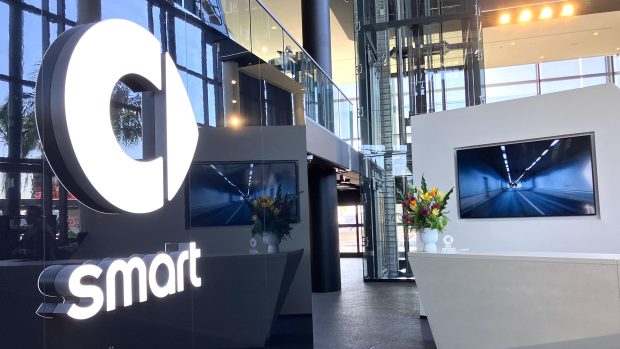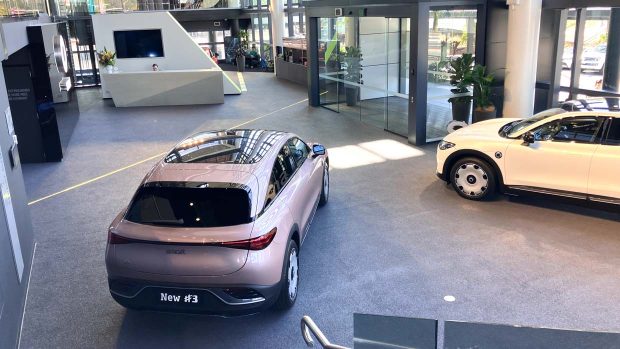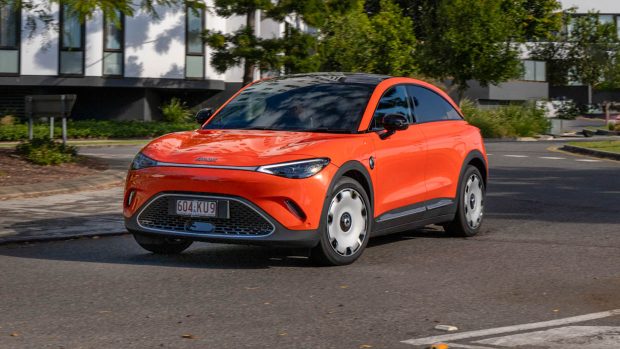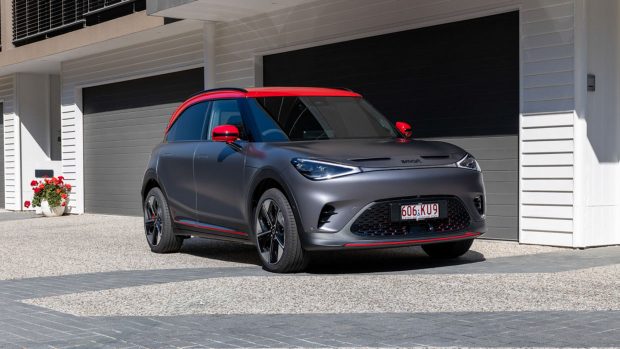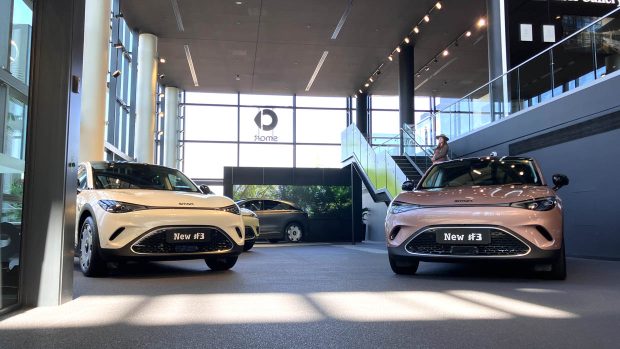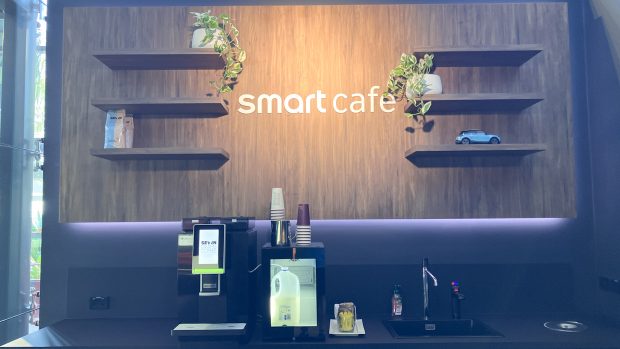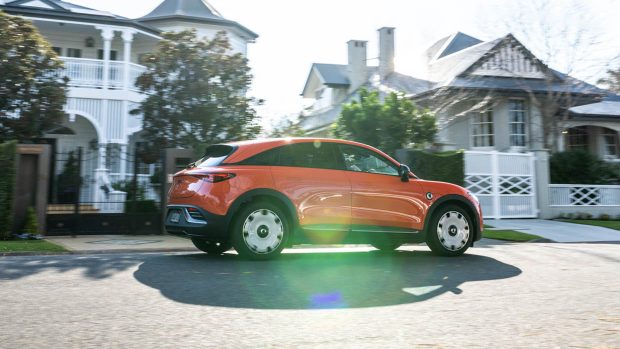-
Car Reviews
- Car News
-
Car Comparisons
Latest comparisons
- Chasing Deals
Smart cars are back in Australia as an EV-only Mercedes-Benz/Geely joint venture… we have many questions.
Car brand Smart has re-launched in Australia, but not as we once knew it.
Famed for its city-friendly ForTwo micro cars and its wonderful, diminutive Roadster, Smart is now an EV-only brand formed as a joint-venture between Mercedes-Benz and Geely.
Chinese company Geely owns and manages numerous car brands, including Volvo, Polestar, Lotus and Zeekr.
Smart cars were sold through Mercedes-Benz Australia dealers up until 2013, then online only until 2015, when slow sales brought down the shutters.
Almost a decade later Smart is back, with the #1 and #3 small SUV crossovers now on sale, and a medium SUV #5 due in the second half of 2025.
And, sorry folks, you must pronounce ‘hashtag’ when saying the names of these cars.
Unlike before, you won’t be able to buy a Smart at just any Australian Mercedes-Benz showroom.
Instead, dealer group LSH Auto International will import and retail the cars from its dealerships in Sydney, Melbourne and Brisbane.
LSH is an international conglomerate headquartered in Hong Kong. It’s the world’s largest Mercedes-Benz operation, with approximately one-in eight Mercedes’ built sold through the group, and operates in over 340 cities globally.
LSH also says it is the world’s largest dealer for Smart automobiles, selling just over 10,000 models globally last year.
Reassuringly, this is no small-fry startup importing business, but a massive global operation.
When asked if there was any connection to Mercedes-Benz Australia, an LSH Auto spokesman simply said: “Zero.”
Basically, that means rival Mercedes-Benz outlets won’t be selling Smart cars, so if you want one, you’ll have to visit Smart Sydney in Alexandria, Smart Melbourne on the Kings Way, or Smart Brisbane in Newstead.
If you’re in other cities or states, things are more complicated. “The website very clearly indicates where the point of purchase is, and where to go to seek information,” the LSH spokesman said.
“In the states where (Smart dealerships) aren’t present, it’s a case of first re-establishing the brand solely as a new EV-only proposition in the premium segment, and then figuring out what the demand might be in other locations.
“We’d then make a decision as to what’s the best way to present the product in those locations, and if the demand is at a level that makes it sustainable.”
When asked how a potential purchaser from, say, Adelaide or Perth would go about buying a Smart, the spokesman said: “You could certainly make all the enquiries online and arrangements can be made.”
We visited Smart’s flagship facility at LSH’s Mercedes-Benz dealership in Brisbane.
The Smart cars have their own separate area of impressive size, away from the Benz products.
First impressions were very positive, with staff friendly and knowledgeable, the showroom beautifully presented and a good selection of #1s and #3s on display in a variety of grades and colours.
Being inside a giant ‘glass-everywhere’ Mercedes-Benz building does plenty for the premium experience. And for those not keen on the studio / shopping centre type showrooms popular with emerging EV brands, there’s a level of familiarity to the Smart buying experience.
The importance of this can’t be understated. Feedback from many potential EV buyers (especially those from an older demographic) is they’re not comfortable ordering a vehicle online. Especially if they’ve not poked, prodded and test driven the car at a traditional-type dealership.
The Brisbane showroom has an area showing wheel choices, body colours and interior colours, plus a ‘Smart idea’ merch wall, showcasing colourful clothing, bags and skateboard to reflect this urban cool brand.
But look, there’s a minor reminder you’re buying Smart and not the full-fat Benz product. There’s a Smart café with an automatic coffee machine, while upstairs at Mercedes there’s a full-time barista ready to take your order.
We know such things are properly important to you Melbourne lot.
The #1 and #3 are already on sale in China, Germany and the UK. The #1 is a more conventionally-styled SUV shape with high back end, while the #3 has a sportier bent and more coupe-like rear styling.
Both these EVs are German designed and made in China, sharing a 66kWh battery pack, with range from 400km to 455km depending on grade and body style.
The #1 and #3 are available in three grades – Pro+, Premium and Brabus. The first two use a single rear motor good for 200kW and 343Nm, while the hot Brabus versions are twin motor and all-wheel-drive, delivering 315kW and 543Nm and 0-100km/h time in 3.7-seconds (#1) or 3.9 seconds (#3).
If those figures sound familiar, these Smarts share hardware with a number of other Geely-sourced cars, including the recently arrived Volvo EX30.
The #1 starts from $54,900, with the mid-grade at $58,900 and Brabus $67,900.
The #3 is the pricier model, costing $57,900, $61,900 and $70,900 respectively. All prices are before on-road costs.
Our review of the Smart #1 and Smart #3 will be live on the site from next week.
Latest news
About Chasing cars
Chasing Cars reviews are 100% independent.
Because we are powered by Budget Direct Insurance, we don’t receive advertising or sales revenue from car manufacturers.
We’re truly independent – giving you Australia’s best car reviews.
